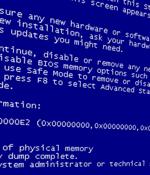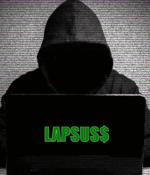Security News

The District of Columbia Board of Elections is currently probing a data leak involving an unknown number of voter records following breach claims from a threat actor known as RansomedVC. DCBOE operates as an autonomous agency within the District of Columbia Government and is entrusted with overseeing elections, managing ballot access, and handling voter registration processes. "We have successfully breached the District of Columbia Board Of Elections and have gotten more than 600k lines of USA Voters," the threat actor says.

Apple released emergency security updates to patch a new zero-day security flaw exploited in attacks targeting iPhone and iPad users. The zero-day is caused by a weakness discovered in the XNU kernel that enables local attackers to escalate privileges on unpatched iPhones and iPads.

Mixin Network, an open-source, peer-to-peer transactional network for digital assets, has announced today on Twitter that deposits and withdrawals are suspended effective immediately due to a $200 million hack the platform suffered on Saturday. Blockchain trackers like PeckShield and Lookonchain have identified roughly $141 million of the stolen assets, analyzed as $93.5M in ETH, $23.5M in DAI, and $23.3M in BTC. This makes the Mixin incident one of the most significant crypto heists this year and creates immediate suspicion about the Lazarus group being responsible for the attack.

The ongoing face-off between Washington and Beijing over technology and security issues has taken a new twist, with China accusing the US of hacking into the servers of Huawei in 2009 and conducting other cyber-attacks to steal critical data. China's Ministry of State Security made the allegations in a posting on WeChat, claiming that in 2009 US intelligence services "Began to invade servers at Huawei headquarters and continued to monitor them."

Microsoft on Wednesday revealed that a China-based threat actor known as Storm-0558 acquired the inactive consumer signing key to forging tokens to access Outlook by compromising an engineer's corporate account. "A consumer signing system crash in April of 2021 resulted in a snapshot of the crashed process," the Microsoft Security Response Center said in a post-mortem report.

Genshin Impact developer miHoYohas responded to an in-game hacking situation that has caused problems recently in its player community, warning that they would take legal action against those responsible. Genshin Impact is a massively popular anime-style open-world exploration game available for Android, iOS, PS4, and Windows with over 60 million active players.

Two U.K. teenagers have been convicted by a jury in London for being part of the notorious LAPSUS$ transnational gang and for orchestrating a series of brazen, high-profile hacks against major tech firms and demanding a ransom in exchange for not leaking the stolen information. Central to pulling off the extortion schemes was their ability to conduct SIM swapping and prompt bombing attacks to gain unauthorized access to corporate networks after an extensive social engineering phase.

The MOVEit hack was not the same as classic ransomware attacks for which groups like Clop initially gained notoriety. Emerging digital forensic analysis from the aftermath of MOVEit suggests the hackers knew about the zero-day flaw in MOVEit as far back as 2021 when they tested it out covertly to see how much access they could get.

A WinRar zero-day vulnerability tracked as CVE-2023-38831 was actively exploited to install malware when clicking on harmless files in an archive, allowing the hackers to breach online cryptocurrency trading accounts. The vulnerability has been under active exploitation since April 2023, helping distribute various malware families, including DarkMe, GuLoader, and Remcos RAT. The WinRAR zero-day vulnerability allowed the threat actors to create malicious.

Analysts, on the other hand, understand that Zero Trust can only be achieved with comprehensive insight into one's own network. This has increased the percentage of Zero Trust advocates from 24% to 55%. The security model known as Zero Trust is an overarching security strategy designed to continuously audit and verify access to resources, both internally and externally.